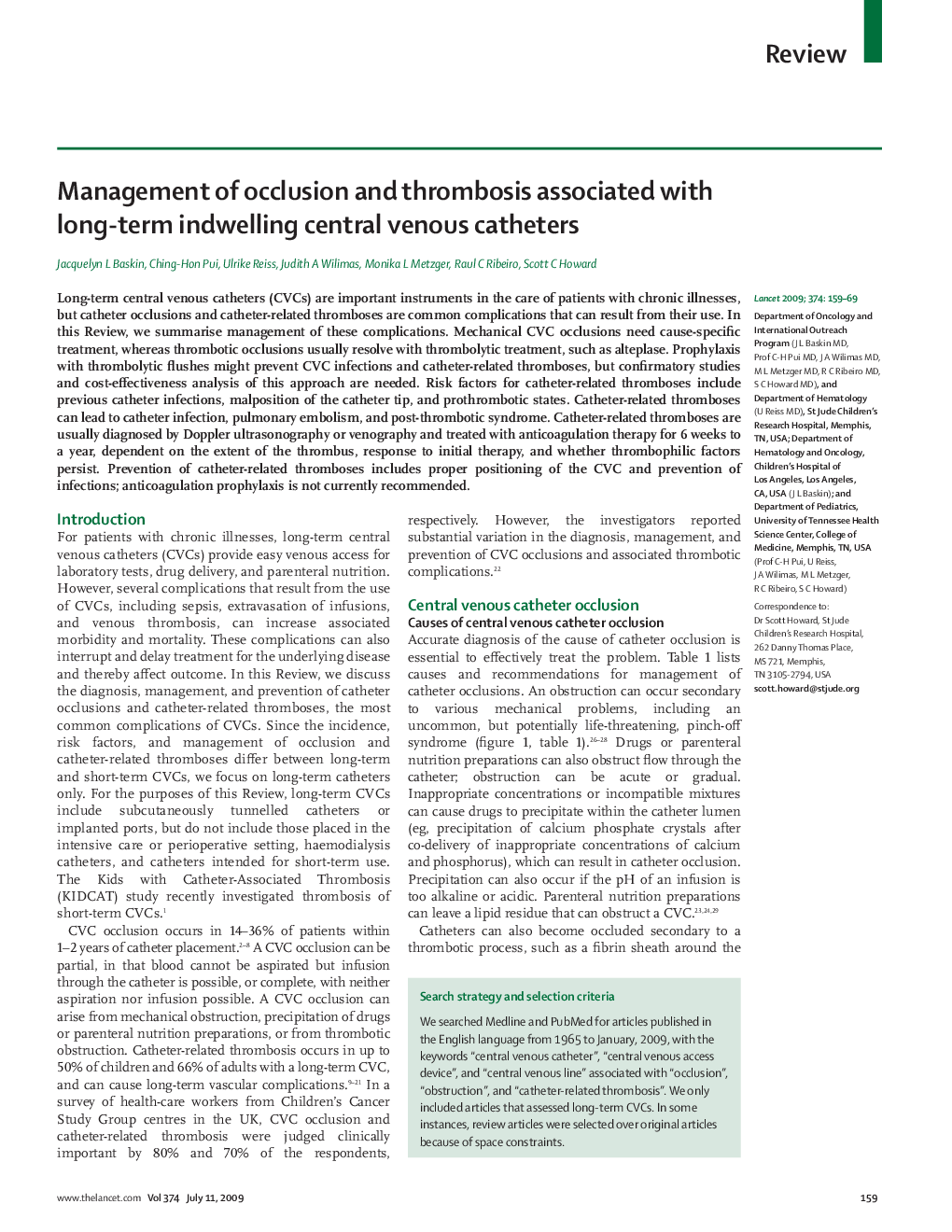| کد مقاله | کد نشریه | سال انتشار | مقاله انگلیسی | نسخه تمام متن |
|---|---|---|---|---|
| 3494615 | 1234308 | 2009 | 11 صفحه PDF | دانلود رایگان |

SummaryLong-term central venous catheters (CVCs) are important instruments in the care of patients with chronic illnesses, but catheter occlusions and catheter-related thromboses are common complications that can result from their use. In this Review, we summarise management of these complications. Mechanical CVC occlusions need cause-specific treatment, whereas thrombotic occlusions usually resolve with thrombolytic treatment, such as alteplase. Prophylaxis with thrombolytic flushes might prevent CVC infections and catheter-related thromboses, but confirmatory studies and cost-effectiveness analysis of this approach are needed. Risk factors for catheter-related thromboses include previous catheter infections, malposition of the catheter tip, and prothrombotic states. Catheter-related thromboses can lead to catheter infection, pulmonary embolism, and post-thrombotic syndrome. Catheter-related thromboses are usually diagnosed by Doppler ultrasonography or venography and treated with anticoagulation therapy for 6 weeks to a year, dependent on the extent of the thrombus, response to initial therapy, and whether thrombophilic factors persist. Prevention of catheter-related thromboses includes proper positioning of the CVC and prevention of infections; anticoagulation prophylaxis is not currently recommended.
Journal: - Volume 374, Issue 9684, 11–17 July 2009, Pages 159–169